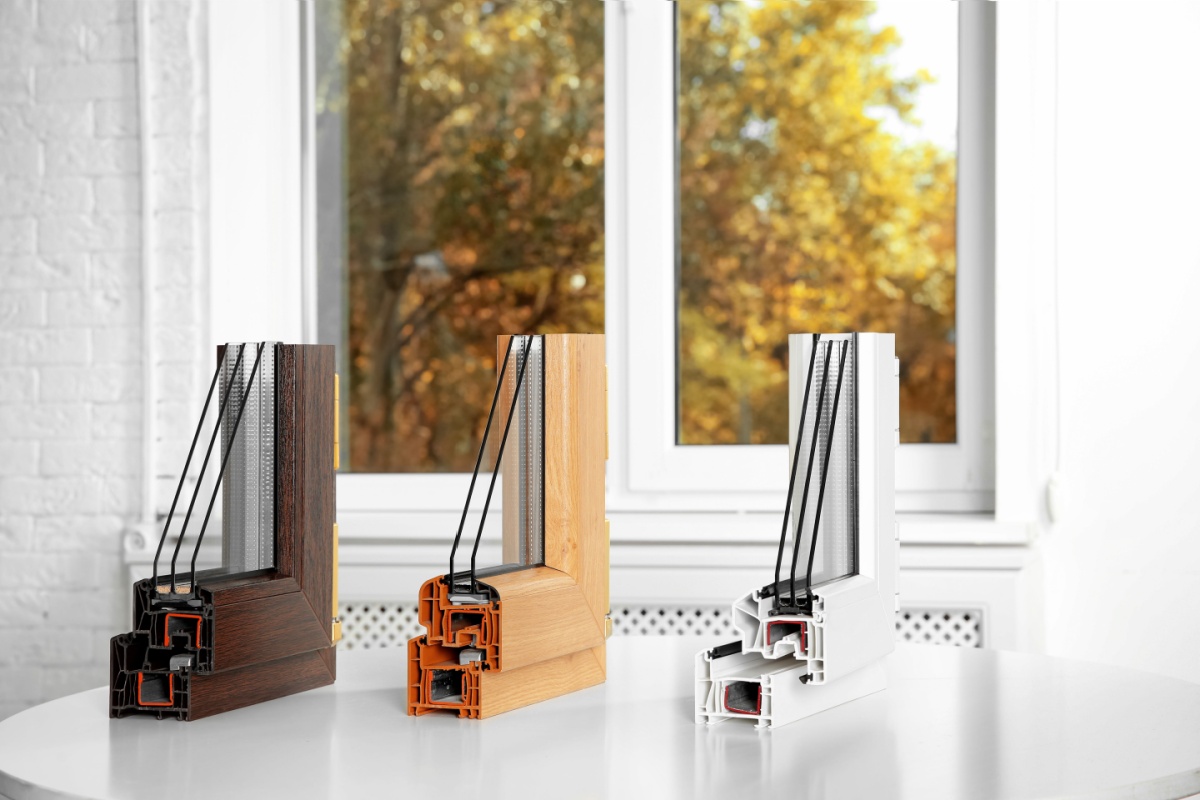Effective Window Glazing Choices for Your Modern Home

Have you ever noticed a draft coming through your windows, even when they’re closed? Or maybe those summer afternoons get uncomfortably hot despite running the AC constantly? Believe it or not, you might be able to significantly improve your home’s comfort and energy efficiency without needing entirely new windows. The answer lies in window glazing!
Window glazing refers to the process of installing glass panes within a window frame. Often, adding more panes or upgrading the existing glazing materials can address a variety of window-related issues. For example, new glazing can enhance your home’s thermal performance, reduce noise, and improve security, all at a fraction of the cost of replacing the entire window unit. If your windows could use an upgrade, consider investing in new window glazing.
Understanding Window Glazing
Are you wondering, “What is window glazing?” We totally get it! The term “window glazing” isn’t commonly used in our everyday language, but it’s an important one to know, especially if you’re a homeowner. So, window glazing refers to the number of glass panes fitted into a window frame. The term can also describe the type of glass used. The right window glazing can help with energy efficiency, soundproofing, and security, making it a crucial consideration in modern home design.
Window glazing materials have come a long way since the days of single-pane glass. Today, a variety of glazing options exist, each offering unique benefits. Here’s a quick breakdown of the most common types of glass for windows:
- Float Glass: This is the most basic and widely used type of glazing material. It’s a single, flat sheet of glass, offering a clear view but minimal insulation.
- Heat-Strengthened Glass: This type of glass is similar to float glass, but it undergoes a heat treatment process to increase its strength and safety. When broken, it shatters into large, sharp pieces.
- Tempered Glass: Tempered glass is a type of safety glass that undergoes a specific heat treatment process, making it four times stronger than annealed glass. When broken, it crumbles into small, blunt pieces, minimizing the risk of injury.
- Laminated Glass: This type of glass is composed of two or more glass panes bonded together with a strong plastic interlayer. This type of glazing offers superior impact resistance and holds the glass together even when shattered, making it ideal for security applications.
- Low-E Glass: This glass is coated to reflect heat and improve energy efficiency. It also blocks UV rays that harm the skin and fade furniture.
Types of Window Glazing
If you’re looking to optimize your home’s energy efficiency, sound insulation, and overall comfort, you need to choose the best window glazing options. Of course, you can’t do this until you understand the differences between the different types of glazing. When you have the chance to upgrade your windows, you will need to choose from single, double, and triple panes.
Single Glazing
Single-glazed windows have only a single pane of glass fitted into the window frame. Historically, single glazing was the only option available, and while it allows for ample natural light, it falls short in terms of insulation and energy efficiency. In modern homes, single glazing is typically replaced or upgraded due to its poor thermal performance and minimal sound insulation.
At this point, you may be wondering why single-paned windows are still even a thing if they have such poor insulating capabilities. While it doesn’t perform well in many applications, it is still a cost-effective option for internal windows and for secondary structures like sheds and garages where thermal insulation is not a significant concern.
Double Glazing
Double glazing has become the standard in many parts of the world, particularly in regions with moderate to extreme seasonal temperature variations. This type of glazing consists of two panes of glass separated by a gap, which acts as an insulating barrier. The gap can be filled with air or inert gases like argon or krypton, which enhance thermal performance without compromising transparency.
Double-paned windows significantly reduce heat loss during winter and heat gain in summer, leading to lower energy bills and increased comfort. They also offer improved sound insulation compared to windows with single glazing, so it’s the perfect choice in urban areas or near busy roads.
Triple Glazing
Triple glazing features three layers of glass with two insulating gaps. This configuration offers superior energy efficiency, making it ideal for homes in extremely cold climates where maximizing heat retention is crucial.
Beyond its thermal benefits, triple glazing also provides excellent sound reduction and enhanced security due to its additional pane. While they are a higher upfront investment, the long-term energy savings and comfort improvements can make triple-paned windows a worthwhile choice for those prioritizing energy efficiency and noise reduction.
Specialty Glazing Types
Beyond the traditional single, double, and triple-glazed windows, there are specialty types like tinted glass, which reduces glare and heat buildup, and impact-resistant glass, which provides enhanced security and storm protection. A professional window glass company like C&C Glass can help you determine which window glazing types are best for your home.
Factors to Consider When Choosing Window Glazing
How do you know which window glaze you should choose for your home? We recommend considering six different factors: thermal performance, sound insulation, security, aesthetics, cost, and environmental impact.
Thermal Performance
The number of panes and the type of gas fill between them (air or gas) significantly impact thermal performance. Double and triple glazing are more effective at reducing energy loss, leading to lower heating and cooling costs.
Sound Insulation
For homes in noisy environments, selecting window glazing with good sound insulation properties is crucial. Double and triple glazing, especially with laminated or acoustic glass, can significantly reduce noise infiltration.
Security Features
Glazing can also enhance home security. Laminated glass is particularly effective as it is more difficult to break. Double and triple glazing also provide additional security benefits due to their layered construction.
Aesthetic Considerations
Window glazing choices can affect the look and feel of your home. Tinted and low-E glazing can reduce glare and improve indoor lighting. Additionally, the type of glass and the number of panes can influence the overall appearance of your windows and doors.
Cost
While single glazing is the cheapest option, it is less efficient. Double and triple glazing are more expensive initially but offer significant savings on energy bills over time. Specialty glazing types, such as low-E and laminated glass, also add to the cost but provide additional benefits.
Environmental Impact
Choosing energy-efficient glazing options can reduce your carbon footprint by lowering your home’s energy consumption. Low-E and double or triple-glazed windows are particularly effective at improving energy efficiency.
Choosing the Right Glazing for Specific Needs
Another way to choose the best window glaze for your space is to evaluate the applications in which the window will be used:
- Residential vs. Commercial Applications: Residential properties benefit from double and triple glazing for comfort and energy savings. In contrast, commercial buildings might prioritize glazing that provides enhanced security and sound insulation.
- Climate Considerations: In colder climates, triple glazing or double glazing with low-E glass can help maintain indoor temperatures by preventing heat loss. In warmer regions, low-E or tinted glazing can reflect heat, reducing the need for air conditioning.
- Building Orientation and Location: Homes facing busy streets or in noisy areas should consider acoustic or laminated glazing for better sound insulation. The orientation of your home can also affect glazing choices. For example, south-facing windows might benefit from low-E coatings to manage solar heat gain.
Installation and Maintenance
Proper installation is crucial for maximizing the benefits of your chosen glazing. Always opt for professional installation to ensure your windows perform as expected. Our team will ensure your window has airtight seals and is installed for optimal performance.
ALso, be sure to prioritize regular maintenance. Maintenance requirements vary by glazing type, but generally, weekly cleaning and checking of the seals can protect the efficiency and longevity of your windows. And, of course, don’t forget to have your windows professionally cleaned on a routine basis to protect the glass’s longevity.
Upgrade Your Window Glazing Today!
At C&C Glass, we offer a wide range of window glazing options to meet your specific needs. Our window glass repair experts will help you select the best glaze for your modern home so that you can enjoy all the benefits of energy-efficient and secure windows. For personalized advice and a detailed assessment of your window needs, contact us today to schedule a repair appointment.

